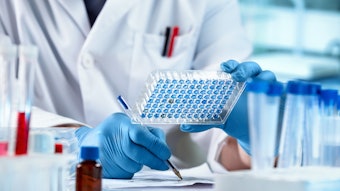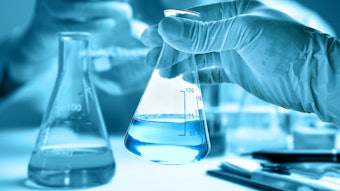Enzymes are proteins that catalyze or accelerate chemical reactions. In enzymatic reactions, the molecules present at the beginning of the process are called substrates. These substrates are converted by enzymes during the process into different molecules called products. Almost all processes in a biological cell need enzymes in order to occur at significant rates.
Since enzymes are extremely selective for their substrates and speed up only a few reactions from among many possibilities, the set of enzymes made in a cell determines which metabolic pathways occur in that cell. An example of an enzyme is Acetylcholinesterase. It catalyzes the breakdown of the neurotransmitter acetylcholine at several types of synapses as well as at the neuromuscular junction—the specialized synapse that triggers the contraction of skeletal muscle.
A hormone (from Greek όρμή - "to set in motion") is a chemical messenger, usually a protein, peptide or steroid, produced by one tissue and conveyed by the bloodstream to another to affect physiological activity such as growth or metabolism. All multicellular organisms produce hormones. The function of hormones is to serve as a signal to the target cells; the action of hormones is determined by the pattern of secretion and the signal transduction of the receiving tissue.
The best-known animal hormones are those produced by endocrine glands of vertebrate animals but hormones are produced by nearly every organ system and tissue type in a multicellular organism. An example of a hormone is growth hormone—a protein hormone of about 190 amino acids that is synthesized and secreted by cells called somatotrophs in the anterior pituitary. This hormone is conveyed to the bloodstream and acts on a number of target cells in control of several complex physiologic processes, including growth and metabolism.










